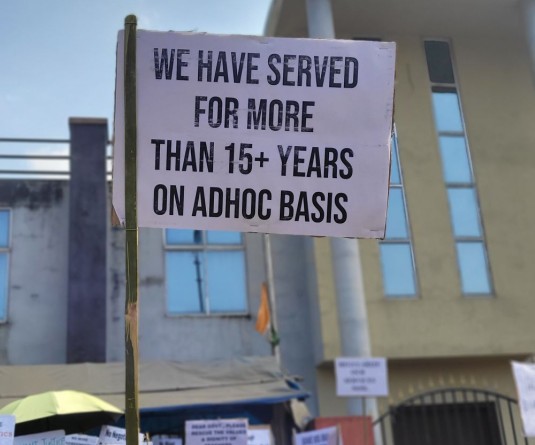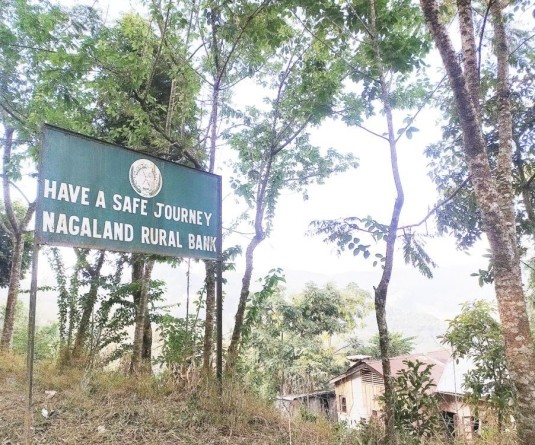Participants of the programme to commemorate World Day Against Child Labour at Don Bosco Higher Secondary School in Kohima on June 12.

Child Labour (Prohibition and Regulation) Amendment Bill needs to be passed by NLA
Morung Express News
Kohima | June 12
While the Indian Parliament had passed the Child Labour (Prohibition and Regulation) Amendment Bill in July 2016, it still remains a ‘bill’ in the state of Nagaland, yet to be passed in the State Assembly. This is causing major roadblocks in addressing the issue of Child Labour wherein ‘domestic helpers’ in the context of Nagaland cannot be labelled under the category of ‘Child Labour’.
Over 700 children in the age group of 5-18 are estimated to be employed as ‘domestic helpers’ in Kohima alone, which was highlighted during the observance of ‘World Day Against Child Labour’ at Don Bosco Higher Secondary School, Kohima on June 12. The awareness programme was organized by Ferrando Domestic Workers’ Alliance, Kohima in collaboration with Childline Centre.
In Kohima, the number of cases received on domestic helpers being abused is about 3-4, whereas if all the districts across Nagaland are taken into account, the total number of cases received from the state would cross 100. Speaking to the media on the sidelines of the awareness programme, Pelezanuo Elizabeth, Child Line Team, who was the resource person, said, “right now, even if we are getting cases of domestic helpers being abused, we cannot register it under the Act” since it has not been passed in the state.
Because of this, she added, “we cannot intervene and register it under the category of child labour.” The cases received in this regard are currently being registered as “missing child”, “runaway children” or “lost and found children.” However, if deeply studied, she said that these are cases of child labour. Many children, she pointed out, are brought from remote areas and are being violated and emotionally abused, if not physically.
Earlier, she highlighted that the International Labour Organisation (ILO) declared June 12 to be the World Day Against Child Labour in 2002 to raise awareness and eliminate child labour. This year, the day is being observed under the theme, ‘Week of Action against Child Labour’ in view of a week-long campaign to raise public awareness of the injustice of child labour and inspire people to take action.
Terming child labour as a “severe problem,” she asserted the need to address the issue that is robbing innocent children of their rights and are forced to do hazardous work under constant trauma.
She further cited that the number of children involved in child labour has risen to 160 million worldwide, which is an increase of 8.4 million children in the last four years as per the ILO and UNICEF. She also pointed out that India is the first in the rank, accounting for 5.8 million children in this regard.
Elizabeth highlighted the causes of child labour such as poverty, lack of access to quality of education, lack of proper access to decent work for the parents of these children, natural disaster and climate change, war and conflict that leads to mass migration, etc. While there are millions of students who dream of going to school but are forced to work, she told the students that they should be proud of their parents for enabling them to get decent education.
“At any point of time, when you find a child being abused or not being treated properly, please call the toll-free Childline 1098, which is available 24/7,” she further urged the students.
Highlights of the event included prayer by Sr. Rincy Kamei; welcome address by Fr. TP James, Principal; speech by Lisisu Dukru, a student of Don Bosco Higher Secondary School; vote of thanks by Ketulhunuo Iralu (student); and words of gratitude by Sarah, FDWA staff. Aneibu was the master of ceremony.





